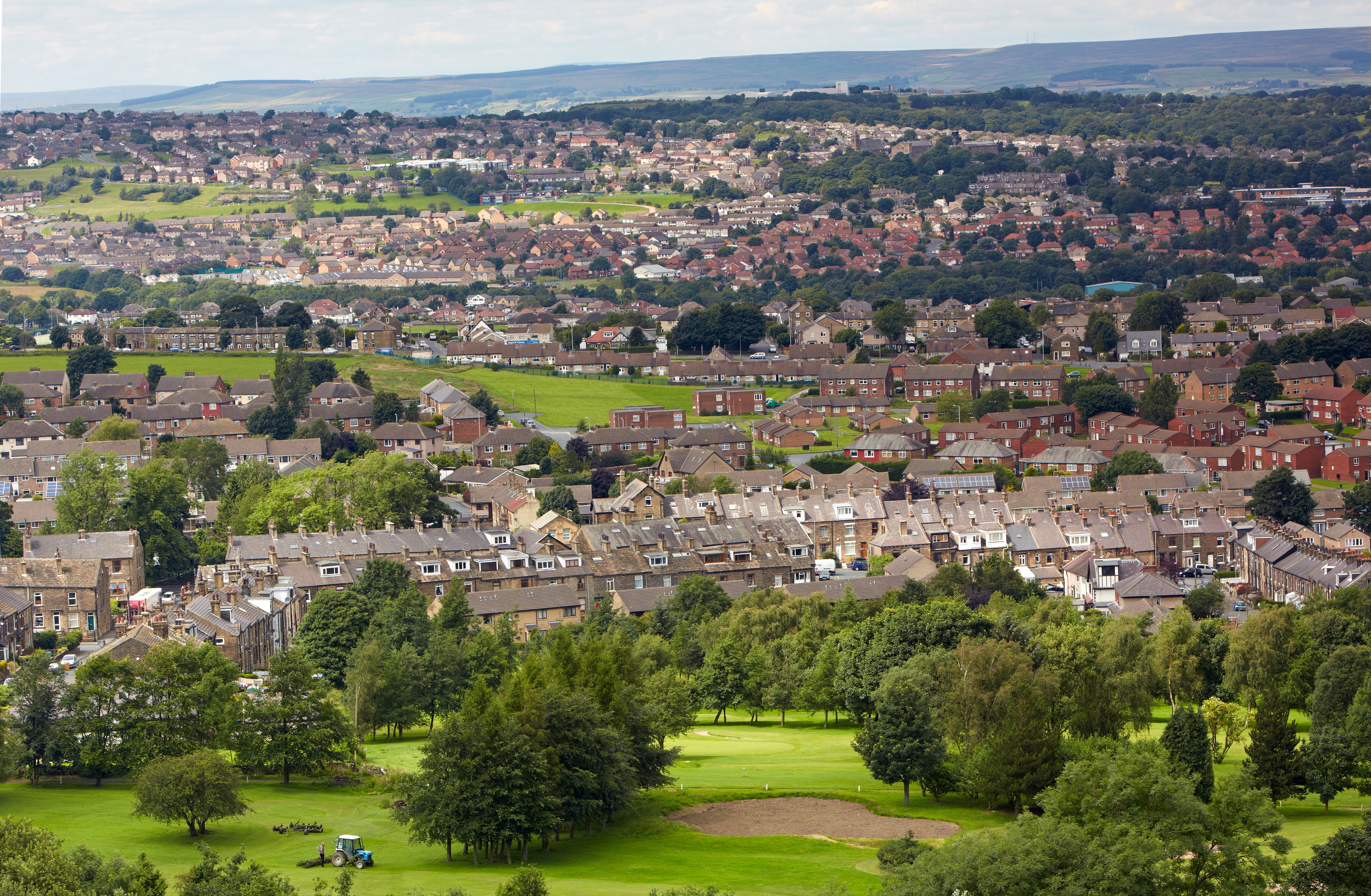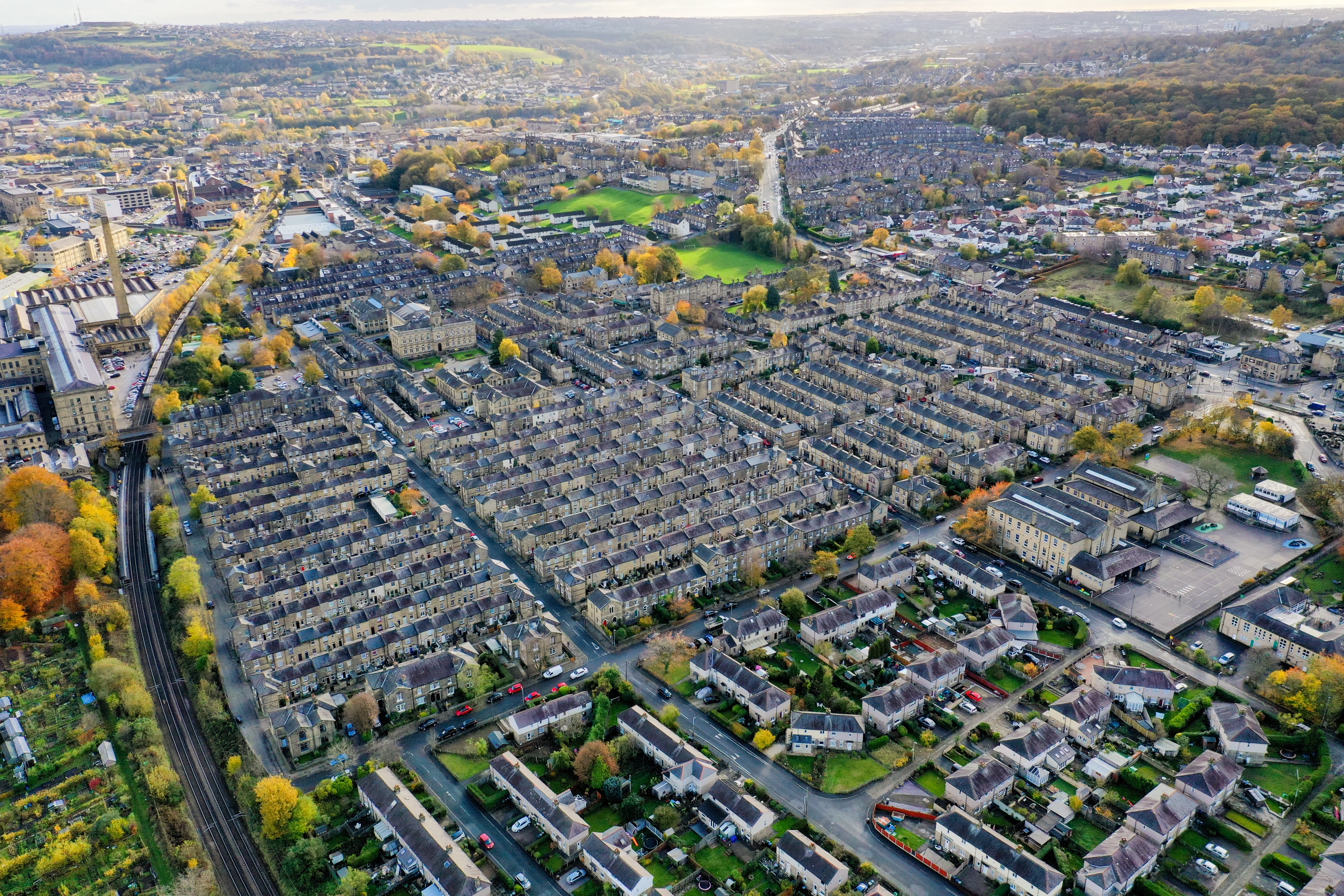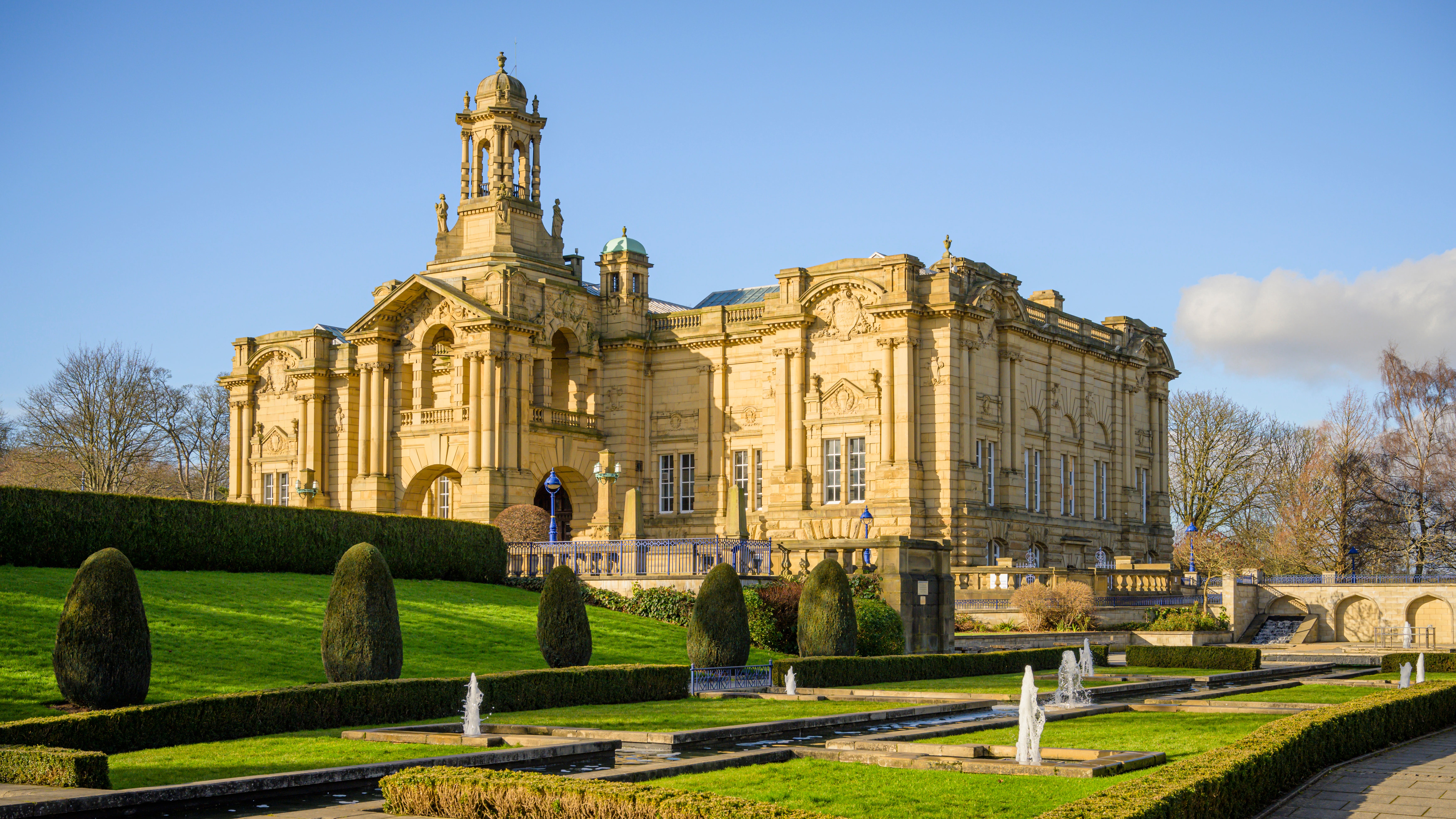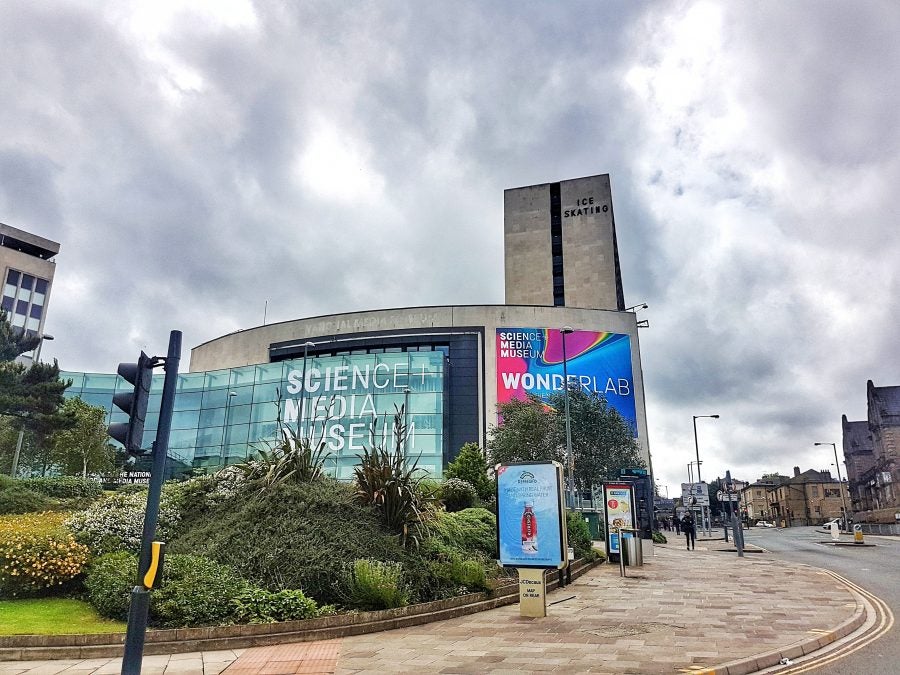How much difference will becoming the next UK City of Culture make to Bradford?
With Bradford set to join the City of Culture ranks in 2025, Colin Drury talks to those convinced the accolade will turn around the West Yorkshire centre’s fortunes, and those who think it’s a sham


When Shanaz Gulzar describes how Bradford might look during its year as the UK City of Culture in 2025, her vision is nothing short of enthralling.
She sees vast art installations in the city’s textile mills, and huge circus performances in the moors around Ilkley. She envisages fashion shows along the rivers here, and imagines terraced streets in Manningham turned into open air galleries with paintings displayed in the windows of every home.
In her absolute wildest dreams, Gulzar – an artist who was chair of the successful bid – sees a large stage in the award-winning City Park square. On it, the area’s greatest creative talents perform: David Hockney knocking out some art, Zayn Malik banging out a few tunes, Dynamo laying on some magic.
“Imagine that,” she says. “That talent and diversity all coming together. That would be proper, proper Bradford.”
When this West Yorkshire city was named the next City of Culture on the BBC’s The One Show at the end of May, it sparked widespread celebrations here. “In football terms,” Zulfiqar Ali Karim, the deputy lieutenant for West Yorkshire, said at the time, “this is us being promoted to the Premiership.”
Following in the footsteps of Derry (2013), Hull (2017) and Coventry (2021), proponents say the year-long jamboree will attract investment, tourists and jobs to one of the UK’s most deprived cities. If done right, they reckon, it will boost both educational attainment and social aspiration. In a place still associated with riots in 2001, the argument is that it will also create a narrative shift that effectively resets its reputation.
Yet not everyone is convinced.
Critics claim the accolade is, at best, a beauty contest that costs much and has limited benefits; and, at worst, is a government distraction technique used to divert attention from years of neglect and under-funding. It may be no coincidence, some have suggested, that just months before Bradford was awarded the title, the long-promised Northern Powerhouse Rail – a new line which would have better connected the city to Leeds and Manchester – was canned.
In both Derry and Hull, meanwhile, there have been questions over whether there have been any legacy benefits at all. Some, in fact, have compared the years following their 12 months in the limelight to a hangover following a party.
It means that, barely a month after Bradfordians celebrated their new title, questions are already beginning to hang in the air. Can 2025 really be the massive civic fillip so many have claimed?
On a summer’s day in City Park – a large urban square surrounded by the Grade-I listed City Hall, library, gallery and a Wetherspoon pub – it seems churlish to question the wisdom of Bradford becoming City of Culture.

Everything here feels vibrant. Bunting still flies from the announcement party. In one corner, a marquee has been erected as the headquarters of the annual Bradford Literature Festival (headlined this year by Robert Peston, Delia Smith and Ben Okri). Across the road, work is transforming a Thirties Renaissance Revival cinema into a new, 4,000-capacity music venue. Even the drinkers in that Wetherspoon appear positive. “No one’s saying it’s the best city in the world but it is the best city in West Yorkshire,” says one – a typically cheeky reference to Leeds, the noisy neighbour next door.
To some extent, the build-up to the cultural extravaganza is already in full swing.
In March, the 19th-century Lister Mills chimney became a towering canvas for a large-scale, three-day projection festival, while the upcoming Summer Unlocked programme will see a series of site-specific theatre, music, film and acrobatic displays take over the city’s waterways, car parks, churches and community centres.
“You can already feel the confidence growing,” says Gulzar, who was born, bred and still lives in the district – in Keighley – after her father moved from Pakistan to work the wool mills in the Sixties. “There has been a real change in these four weeks. Bradford’s attitude tends to be that we know we’re brilliant but why shout about it? Now, we’re saying, ‘Well, why shouldn’t the rest of the world know it too?’”
The official hope is that being City of Culture will lead to £700m worth of private and public investment – in both the cultural sector and public realm regeneration – and create 3,000 jobs. If all goes to plan, 2025 itself will see a million people attend 1,000 performances, with every single neighbourhood across the district – which includes the Unesco world heritage village of Saltaire – staging events. While previous programmes have attracted high numbers of local people – 90 per cent of Hull residents attended at least one show in 2017 – Bradford says it is aiming to widen out the appeal. Bosses want 25 per cent of the total eventual audience to come from overseas.
“By our population and history, we are a global city with global links,” says Gulzar. “So, if we use those links, there’s no reason we can’t [hit that target].”
On a summer’s day in City Park, it seems churlish to question the wisdom of Bradford becoming City of Culture
Just as important is the belief that being City of Culture can alter the very aspirations of a place and boost the feel-good factor about living somewhere.
“This is very difficult, very tricky, to measure so there’s no hard data about it yet,” says Professor Jonothan Neelands, from the University of Warwick, who is currently researching the impact of Coventry’s year in the limelight. “But, you know, walking around Coventry, it feels different.
“There is a civic pride that perhaps wasn’t quite there five or six years ago. The place has more colour and light at night. We’re working on how you quantify this in data but I am convinced the change is real. Five years ago, you wouldn’t be able to eat out in Coventry after 7pm on a midweek, and now there’s just a bustle.”
Gulzar and the Labour-run city council also insist the jamboree will inspire ambition on an individual level.
“You cannot pull yourself out of poverty if you cannot see yourself or your surroundings in a different way,” argues Gulzar. “This allows communities here to see themselves in that different way… Our lead quote was ‘I come from hope, I come from Bradford’. Well, this is what we are doing: creating hope.”
Syima Aslam, director of Bradford Literature Festival, agrees.
When she first launched her annual programme here in 2014, it was five events over two days. People repeatedly told her that a literature festival wouldn’t work in Bradford. Try Leeds instead, they said.
This year, there were some 500 events across 10 days attended by an estimated 70,000 people. So popular has it become that it has now spread its wings into neighbouring Halifax where the Grade I-listed Square Chapel became the first out-of-town venue.
“When I set up, the whole idea was to create a cultural renaissance that would help with economic regeneration,” says Aslam today. “Well, that’s worked. We promote and fund culture here while being a large economic driver…Now, being City of Culture will do the same on a larger scale.”
That such transformation is needed in Bradford, few would deny.

The city is young (30 per cent of the population are under 20), diverse (a quarter of people here are Muslim) and a historic economic heavyweight (made rich on wool in the 19th century). But it has suffered decades of decline and stagnation. Deindustrialisation, austerity and coronavirus have all pummelled the place over the last half-century. Much of its Victorian heritage is long gone: pulled down amid a largely derided improvements programme in the 1970s.
Today, it is the fifth poorest local authority area in England, has the second-highest unemployment rates of any major city in the UK, and has some of the country’s worst educational attainment rates. It has been repeatedly overlooked for major infrastructure projects such as the aforementioned Northern Powerhouse Rail, which would have seen a major new railway station built here. The council budget was slashed by 40 per cent in the decade following 2010.
Yet whether the City of Culture title is the right mechanism for improving any of this – or a mere distraction – is something of a contested point. Questions hang over the extent of any economic benefits and, crucially, if they will really be felt by the wider population.
Once a city has made a decision to compete, there’s a lot of pressure to win
Dr Philip Boland, an expert in cultural economics and city growth at Queen’s University Belfast, suggests something called “impact inflation” happens when people begin advocating for the accolade.
“Once a city has made a decision to compete to be City of Culture, there’s a lot of pressure to win,” he explains. “And in order to win, a city has to show the title will have a greater impact there than in other places. So, you get the local political, economic and cultural elites... exaggerating the benefits and how transformative it will all be.
“They know a lot of the claims are not realistic but they are caught in this competition of glossy brochures and sexy PowerPoint presentations. They lose any sense of sober realism.”
It is not that there is no economic impact from the title, he admits. In Hull, indeed, some £676m is estimated to have been invested at least partially as a result of the accolade. But just how widely these benefits are felt by the general population away from a thin cultural and central slither is something of a moot point, he suggests.
“I think the analysis after Liverpool [European City of Culture in 2008] was that it created £830m for the city’s economy,” he says. “Well, what are the real distributional consequences of that figure? Because I’m at my mum’s house on the south side of the city right now and I’m certainly not seeing the consequences here, looking out her window.”
This sense of entire neighbourhoods being left behind was arguably best summed up by a (sort of) piece of art that appeared in Croxteth in 2008. It was a banner put up anonymously on a derelict house. “Capital of culture,” it read. “You must be having a laugh.”
The argument that the accolade inspires job creation also feels unproven. In Hull, in fact, some 120 cultural jobs were actually lost during 2016-2017, according to a 2019 report by the city’s university. “This may partly reflect the fact that a significant proportion of the main programming for the year was brought in from outside the city,” it stated. “There was a limited focus on capacity-building for the city's cultural sector.”

There is also the cost of the bids themselves to take into account.
Bradford is thought to have spent as much as £1m on its campaign (although a question asking exactly how much has gone unanswered). If 2025 is a success, this will, advocates say, be money well spent.
But there were 19 other cities that initially bid.
How much public money each of these spent remains unclear at present but, safe to say, such a project doesn’t come cheap: research by the University of Warwick found those councils hoping to win the 2021 title spent between £50,000 and £1m each on their bids.
“If you can find these kinds of pots of money to engage in a beauty contest, should that not be spent on projects in deprived communities and marginal estates?” asks Boland, who has researched the impact of both Liverpool’s year as European capital of culture and Derry’s year as the first UK city of Culture.
Back in Bradford itself, it is a point that councillor Riaz Ahmed – the deputy leader of the Lib Dem group here – has spent the last couple of years making.

“I’ve had my reservations from day one about it and the more I hear, the more those reservations grow,” he says. “We are now about to spend three years spending huge energy, resources and focus on something which, as far as I can see, will have no real lasting legacy. The council talks about the economic benefits of this but the cost of what we will spend as an authority will run into millions.”
The council, he says, should focus instead on more concrete job creation. Too many people living in Bradford commute out of the area to work. “We’re becoming a suburb of Leeds,” he argues. “Being a City of Culture is not going to change that. Long-term, it is not going to change ordinary people’s lives.”
Rather, he would like to see greater focus on readying the region to be well placed to become a focal point for new digital and green jobs. “That’s the way you turn a place around,” he says.
It is a debate which, one suspects, will now run long beyond 2025 – and will almost certainly be had by the next City of Culture too.
Yet back with Gulzar, she remains adamant the title will be worthwhile. If nothing else, proponents say, it will be a fitting way to celebrate two decades of hard and oft-invisible work undertaken to create a more tolerant and harmonious city following those race riots in 2001.
Just as Derry 2013 was seen as a way of rebranding the city after the Troubles, it is said Bradford 2025 could finally disconnect the city’s image from its own three nights of violence at the start of the decade.
“For 20 years we’ve been associated with something that doesn’t reflect us at all,” says Gulzan “We are a different place now. This gives us the opportunity to show that to the world.”






Join our commenting forum
Join thought-provoking conversations, follow other Independent readers and see their replies
Comments